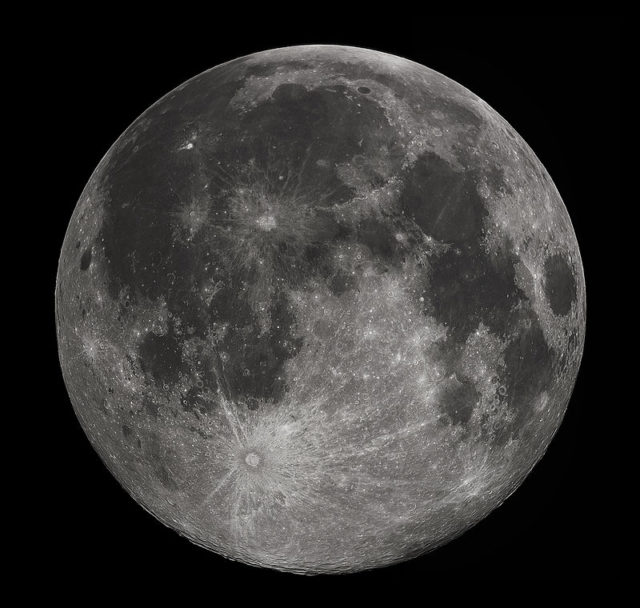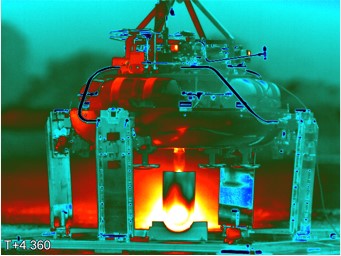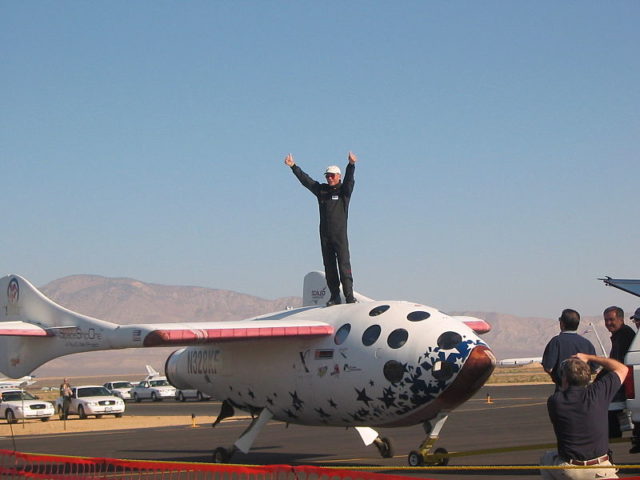A Florida-based corporation has received approval from the U.S. government to send a robotic lander to the moon next year. The Federal Aviation Administration’s green light for the Moon Express assignment also sets a new precedent for a host of other profitable journeys to asteroids, the moon, and even Mars. Moon Express, which is collaborating with NASA, aims to deliver scientific materials to the moon, with the ultimate ambition of providing commercial amenities.
The moon is a treasure chest of useful resources. It has immense sums of water, iron ore, raw materials and valuable metals, as well as nitrogen, hydrogen, helium-3 and carbon. Specialists have estimated the value of these resources in the trillions of dollars. The moon could also act as a fuel yard posting for interstellar space exploration. It has enormous quantities of ice stuck on the lunar rods, which could potentially be used for rocket petroleum.

According to Bob Richards, the founder of Moon Express, the plan is to fly a mid-sized lander to the moon for a two-week assignment in 2017. The spacecraft will transport a quantity of science tests and some payload on its one and only trip to the lunar exterior, together with incinerated human remnants, and will beam images and films to Earth. Beforehand, no government organization was documented as having authority to supervise private enterprises outside Earth’s orbit. However, a 1967 international agreement holds the United States accountable for any trips into space by its non-government entities.
So far, only government organizations have launched spacecraft outside Earth’s orbit. The FAA, which even now exercises authority over the rocket takeoffs in the United States, ran an interagency appraisal of the Moon Express application, which comprised phases the corporation would take to safeguard agreements with the 1967 Outer Space Treaty. Other businesses are expected to keep a close eye on these developments.
Moon Express aspires to mine our satellite for resources like platinum cluster metals, helium-3, moon rocks and rare earth metals. The rare elements on Earth originated from space and can still be found in abundance on the surface of the Moon. The corporation has signed Rocket Lab, which originated in New Zealand but is now headquartered in Los Angeles, to launch a robotic spacecraft. Rocket lab will undergo three trial runs of the Electron rocket systems. Three missions, starting in 2017, will be launched using Moon Express’ MX-1 lunar lander spacecraft.

Other projects in the pipeline include assignments to explore asteroids, maneuver science labs and renovate satellites. Planetary defense is less of a worry on the Moon, but Moon Express did have to struggle with worries about disturbing Apollo and other significant lunar landing sites, amongst other matters. NASA and other organizations, including the Defense, State and Commerce subdivisions, in the end, agreed that no new law was essential. As part of the contract, NASA will counsel, but not control, Moon Express’ actions on the lunar surface. Until now a supervisory obstacle has been stopping the strategies from going in advance, for the very reason that it is the first mission of its kind.
THE RACE FOR SPACE TOURISM
In 1995, the St. Louis-based X Prize Foundation considered the indication of a $10 million prize for expansion of a behind closed doors financed, reusable spaceship capable of carrying three people to an altitude of 62 miles two times within multiple weeks. The X Prize declaration the next year was planned to coincide with the anniversary of Charles Lindbergh’s continuous flight from New York to Paris on board The Spirit of St. Louis in 1927. This earned the aviator cash winnings of $25,000 Orteig Prize presented in 1919 for the trans-Atlantic voyage. On the 21st of June, 2004 SpaceShipOne, a design by Rutan and financed by Microsoft co-founder Paul Allen, had ascended more than 62 miles overhead the California desert and then moved smoothly to a landing at Mojave Airport as crowds applauded. It launched another time on the 29th September, accomplishing the mandatory altitude, and afterward launching once more on the 4th October. Peter Diamandis, the founder of the X Prize, proclaimed the altitude was certified, and the SpaceShipOne team sealed the award.

Since then, three businesspersons have been pinned against each other: Jeff Bezos with Blue Origin; Elon Musk with SpaceX; and Richard Branson with Virgin Galactic. Other participants include XCOR, which has pioneered an innovative spaceplane design. XCOR Aerospace is based at the Mojave Air and Space Port in California. Its Lynx spacecraft seats two people: the pilot and one passenger. The tickets cost $95,000; nearly two-thirds the cost of Virgin Galactic’s SpaceShipTwo. The Florida-based Corporation, Moon Express, is joining with NASA to direct a 20lb bundle of scientific equipment to the moon next year. Eventually, it wants to offer services to businesses on Earth. This move will possibly pave the way for other similar businesses to receive support from the authorities, helping to turn space tourism and asteroid mining from science fiction into reality.
THE GOOGLE LUNAR X PRIZE
Moon Express is currently close to gaining mission approval from the Federal Aviation Administration, after months of awareness raising. The business is amongst those challenging for the Google Lunar X Prize, a $30 million award intended to “incentivize space entrepreneurs to create a new era of affordable access to the moon and beyond.” To win this award, a private business needs to land without harm on the exterior of the moon, travel 1,640ft on the surface and send binary signal back to the Earth. Moon Express feels it is necessary for humankind to become a multi-world species and that the moon, a landmass holding massive resources, is crucial to the future of our species. The moon is inimitable, and its surface has continued reasonably continuous over billions of years. Moon Express was bestowed $1 million by Google last year as the solitary team firing for the moon to fly their experiment a prototype of its lander.
The $30 million prize is to incentivize space entrepreneurs to generate an innovative era of affordable space travel to the moon and beyond. The reward intends to produce a new Apollo program for this generation and to encourage lunar exploration.
The Google Lunar X Prize, which kicked off with 25 competing teams, is currently in its deciding round, and a choice on funding is in arrears to be completed in 2016. Rocket Lab intends to use their Electron rocket system to launch multiple tasks of the Moon Express MX-1 lunar landing spacecraft, proceeding in 2017. The launches will proceed either from New Zealand, where Rocket Lab is structuring a South Island launch location, or from an American launch site. Rocket Lab uses battery power-driven rocket devices that are more economical than customary engines and rapidly produced using 3D printers.
Experts believe the moon may be the key to revealing information and resources that will assist humanity in fulfilling its potential as a space faring species. Corporations such as Blue Origin, Virgin Galactic, and Space X are becoming increasingly important following cuts to NASA’s budget. Space X has publicized that it will propose the first postal facility to direct correspondence to Mars commencing in 2018. This postal service will be more expensive than most, and customers should be prepared to part with upwards of $60 million to secure its services.
THE COMPETITION TO CONSTRUCT REUSABLE ROCKETS
Reusable rockets would amend budgets and surplus in the space sector, which at this time loses millions of dollars in jettisoned equipment after each launch. The European, Japanese, and Russian space agencies are also developing comparable technologies which are already in testing phases. Bezos stated previously this month that Blue Origin aims to commence crewed trial flights of the New Shepard, the corporation’s lead rocket, next year, and start flying commercial travelers as soon as 2018.
In December 2015, Space X made history when it landed the first-ever reusable rocket at a landing pad at Cape Canaveral. Blue Origin’s New Shepard accomplished another upright landing in April this year. The Indian space organization also aims to produce its own shuttle after a promising trial launch this week, as it hopes to cash in on lucrative requests from other countries to send up their satellites.
